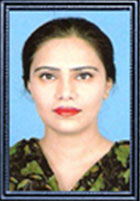Journal of Social Science for Policy Implications, 1(1), pp. 23-31.
Abstract
Abstract The paper tried to clarify factors influencing academic achievement of prospective teachers studying in different teacher education programs. The government has focused on the improvement in the quality of education especially after the quantitative expansion of enrolment rates at all levels of education. As one of criteria of the quality of education, prospective teachers’ academic achievement was investigated inthe paper, because academic achievement is most often cited as a institutional effectiveness indicator byadministrators, teachers, students and their parents (Gaziel, 1996). The study was carried out on a sample of 200 students of 9 departments of Institute of Education and Research, University of the Punjab, Pakistan. The sample was randomly selected and 22 students of 4th semester from each department were taken. Cumulative Grade Point Average (CGPA) of students was also taken. Information was collected through questionnaire. The result of the research study showed that parental involvement, teacher teaching style, socioeconomic status, peer pressure, and motivationwere effecting student’s achievement.
Full Text: PDF
Nasreen, Dr. Abida., & Naz, Anjum. (2013). A Study of Factors Effecting Academic Achievement of Prospective Teachers.Journal of Social Science for Policy Implications, 1(1), pp. 23-31.
Bergin, D. A. (1999). Influences on classroom interest. Educational Psychologist, 34(2), 87–98.
Bos, K. & Kuiper, W. (1999). Modeling TIMSS Data in a European Comparative Perspective: Exploring Influencing Factors on Achievement in Mathematics in Grade 8. Educational Research and Evaluation, 5 (2), 157 — 179.
Brookover, W. B. & Lezotte, L. W. (1979). Changes in School Characteristics Coincident with Changes in Student Achievement. East Lansing, MI: Michigan State University.
Carrotte, P. (1999). Turning academics into teachers. In S. Rowland et al. Teaching in Higher Education, 4 (3), 411–14.
Chaudhry, A. H. (2006). Effect of Guidance Services on Study Attitudes, Study Habits and Academic Achievement of Secondary School Students. Bulletin of Education & Research 28, (1), 35-45.
Good, T. (1987). Two decades of research on teacher expectations: Findings and future directions. Journal of Teacher Education, 37 (4), 32–47.
Lee, C. & Bobko, P. (1994). Self-efficacy beliefs: comparison of five measures, Journal of Applied Psychology, 79, pp. 364–369.
Linnakyl, P., Malin, A. & Taube, K. (2004). Factors behind low reading literacy achievement
Martinez, Judith, (2004). Parental involvement: key to student achievement. National center for school engagement at the colorado foundation for families and children. Retrieved from http://www.schoolengagement.org/TruancypreventionRegistry/Admin/Resources/Resources/ParentalInvolvementKeyToStudentAchievement.pdf on 5-3-2013
Mueller, C. M. & Dweck, C. S. (1998). Praise for intelligence can undermine children’s motivation and performance. Journal of Personality and Social Psychology, 75(1), 33–53.
Rainey, D. V. & Murova, O. (2004). Factors influencing education achievement. Applied Economics, 36 (21), 2397 — 2404.
Schneider, M. (2002). Do School Facilities Affect Academic Outcomes? National Clearinghouse for Educational Facilities. Retrieved from www.edfacilities.org on Aug 20, 2008.
Packham, G. & Miller, C. (2000). Peer-Assisted Student Support: A new approach to learning. Journal of Further and Higher Education, 24, (1), 55-65.
Thompson, T. (1997). Do we need to train teachers how to administer praise? Self worth theory says we do. Learning and Instruction, 7 (1), 49–63.
Urdan, T., & Schoenfelder, E. (2006). Classroom effects on student motivation: goal structures, socialrelationship, and competence beliefs. Journal of School Psychology, 44, 331-349.
Wankowski, J. (1991). Success and failure at university, in: K. Raaheim, J.
Wankowski & J. Radford. (1991). Helping Students to Learn: teaching, counselling, research, pp. 259–267, London, Society for Research into Higher Education & OUP.
 Dr. Abida Nasreen is Assistant Professor at Institute of Education&Research, University of the Punjab, Lahore, Pakistan since 2003. She got first class first position in her master’s in Education. She has done her PhD in the area of Educational Management and Administration in 2010. Her dissertation title was “Faculty management in the Public sector Universities of the Punjab”. She has published many articles in national and international journals. She has also worked as a team member in some national projects on Education funded by UNESCO, World Bank, and US government. She has attended many national and international conferences and workshops. She participated in some training programs both in-country and abroad. Currently her job assignments include teaching post graduate level classes and advising students in their theses writing.
Dr. Abida Nasreen is Assistant Professor at Institute of Education&Research, University of the Punjab, Lahore, Pakistan since 2003. She got first class first position in her master’s in Education. She has done her PhD in the area of Educational Management and Administration in 2010. Her dissertation title was “Faculty management in the Public sector Universities of the Punjab”. She has published many articles in national and international journals. She has also worked as a team member in some national projects on Education funded by UNESCO, World Bank, and US government. She has attended many national and international conferences and workshops. She participated in some training programs both in-country and abroad. Currently her job assignments include teaching post graduate level classes and advising students in their theses writing.
Contact Number:0302-4107300
Email Address: [email protected]
Anjum Naz
University of Sargodha
Sargodha, Pakistan
Browse Journals
Journal Policies
Information
Useful Links
- Call for Papers
- Submit Your Paper
- Publish in Your Native Language
- Subscribe the Journal
- Frequently Asked Questions
- Contact the Executive Editor
- Recommend this Journal to Librarian
- View the Current Issue
- View the Previous Issues
- Recommend this Journal to Friends
- Recommend a Special Issue
- Comment on the Journal
- Publish the Conference Proceedings
Latest Activities
Resources
Visiting Status
| 108 | |
| |
1237 |
| |
14771 |
| |
29947 |
| 1458132 | |
| 6 |
 The Brooklyn Research and Publishing Institute
The Brooklyn Research and Publishing Institute